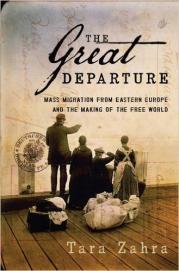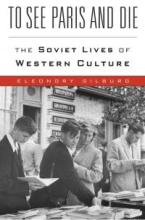
University of Michigan, PhD '05
BIOGRAPHY
Tara Zahra's research focuses on the transnational history of modern Europe, migration, the family, nationalism, and humanitarianism. Her latest book, Against the World: Anti-Globalism and Mass Politics Between the World Wars will be published by W.W. Norton Press in 2023. With Pieter Judson, she is currently working on a history of the First World War in the Habsburg Empire. Zahra is also the author of The Great Departure: Mass Migration and the Making of the Free World (Norton, 2016) and, with Leora Auslander, Objects of War: The Material Culture of Conflict and Displacement (Cornell, 2018). Her previous books include The Lost Children: Reconstructing Europe's Families after World War II (Harvard, 2011) and Kidnapped Souls: National Indifference and the Battle for Children in the Bohemian Lands (Cornell, 2008).
Graduate Advising
I welcome applications from graduate students interested in Central European history (including Habsburg, East European, and German history) in the nineteenth and twentieth centuries, as well as European international history and transnational history. Some of my current and former PhD students have worked on the history of gender and sexuality in late Imperial Vienna; migration and the family in postwar West Germany; the body in late Socialist Czechoslovakia; Jewish culture in postwar Czechoslovakia and Poland, Roma in postwar Hungary; colonialism and empire in Poland and Germany; and masculinity and coal mining in Socialist Czechoslovakia.
Recent Course Offerings
Undergraduate
-
Writing Family History (junior colloquium)
-
Human Rights in World Civilization
-
Twentieth-Century Europe
-
History of Human Rights (in Vienna)
-
East Central Europe in the Twentieth Century
-
Nazism (junior colloquium)
-
European Civilization I & II
-
Gender & Sexuality in World Civilization
-
Migration and Displacement in Twentieth-Century Europe
Graduate
-
History and Anthropology of the Present (with Susan Gal)
-
Seminar: Globalization and Its Discontents (with Jon Levy)
-
Transnational Europe: Twentieth Century
-
Nations & Empires (with Susan Gal)
-
Nationalism in East Central Europe
-
Unsettled Europe: Migration and Displacement in Modern Europe
-
Gender and Sexuality in Modern Europe (with Leora Auslander)
-
Historiography (with Emily Osborn)
-
Migration and Material Culture in Modern Europe (with Leora Auslander)
University and Departmental Service
-
Roman Family Director, Neubauer Collegium for Culture and Society
-
Faculty Sponsor of Transnational Approaches to Modern Europe Workshop
-
Executive Board, Center for Russian, East European, and Eurasian Studies
-
Faculty Affiliate, Center for Study of Gender and Sexuality
-
Editorial Board, Past & Present
Recent Research / Recent Publications
Against the World: Anti-Globalism and Mass Politics Between the World Wars. New York: W.W. Norton, 2023.
Coauthored with Pieter Judson, The Great War and the Transformation of Habsburg Central Europe. Oxford & New York: Oxford University Press, in progress.
Coauthored with Leora Auslander. Objects of War: The Material Culture of Conflict and Displacement. Ithaca, NY: Cornell University Press, 2018.
The Great Departure: Mass Migration from Eastern Europe and the Making of the Free World. New York: W.W. Norton, 2016.
-
Review by Benjamin Cunningham in the Los Angeles Review of Books (May 24, 2016)
-
Review by The Economist (April 30, 2016)
-
Interview with Adam Morgan for the Chicago Review of Books (April 7, 2016)
-
Review by Julie M. Klein in the Chicago Tribune (March 17, 2016)
The Lost Children: Reconstructing Europe's Families after World War II. Cambridge, MA: Harvard University Press, 2011.
-
George Louis Beer Prize, American Historical Association, 2012
-
Radomir Luza Prize, Austrian Cultural Forum, 2012
Kidnapped Souls: National Indifference and the Battle for Children in the Bohemian Lands, 1900–1948. Ithaca, NY: Cornell University Press, 2008; paperback, 2011.
-
Book Prize, Czechoslovak Studies Association, 2009
-
Barbara Jelavich Book Prize, American Association for the Advancement of Slavic Studies, 2009
-
Hans Rosenberg Book Prize, Conference Group for Central European History, 2009.
-
Book Prize, Austrian Cultural Forum, 2008-2009
-
Laura Shannon Prize, Nanovic Institute, 2008–2009
-
“Migration, Mobility, and the Making of a Global Europe,” Contemporary European History 31 (February 2022), 142-54.
-
“Against the World: The Collapse of Empire and the Deglobalization of Interwar Austria,” Austrian History Yearbook 52 (2021)
-
“Fin d’empire et genre de la déglobalisation,” Clio. Femmes, genre, histoire 53, 2021.
-
"'Condemned to Rootlessness and Unable to Budge': Roma, Migration Panics, and Internment in the Habsburg Empire." American Historical Review 122, no. 3 (Jun. 2017).
-
"Europe's Shifting Borders." Foreign Affairs (Feb. 11, 2017).
-
"Travel Agents on Trial: Policing Mobility in Late Imperial Austria." Past & Present 223 (May 2014): 161–93.
-
"Forum: Habsburg History." German History 31 (Jun. 2013): 225–38.
-
With Pieter M. Judson. "Introduction." Austrian History Yearbook 43 (2012): 21–27.
-
[Papers from the May 2008 symposium, "Indiference to Nation in Habsburg Central Europe."]
-
"Going West." East European Politics and Societies 25 (Nov. 2011): 785–91.
-
"'The Psychological Marshall Plan': Displacement, Gender, and Human Rights after World War II." Central European History 44 (Mar. 2011): 37–62.
-
"Enfants et purification ethnique dans la Tchécoslovaquie d'après-guerre." Annales. Histoire, Sciences Sociales 66 (Apr.–Jun. 2011).
-
"'A Human Treasure': Europe's Displaced Children Between Nationalism and Internationalism." Postwar Reconstruction in Europe: International Perspectives 1945–1949 Past & Present Supplement 6 (2011): 210.
-
"Imagined Non-Communities: National Indifference as a Category of Analysis." Slavic Review 69 (Spr. 2010): 93–119.
-
"'Prisoners of the Postwar': Expellees, Refugees, and Jews in Postwar Austria." Austrian History Yearbook 41 (2010): 191–215.
-
"Lost Children: Displacement, Family, and Nation in Postwar Europe." Journal of Modern History 81 (Mar. 2009), 45–86.
-
"The Minority Problem: National Classification in the French and Czechoslovak Borderlands." Contemporary European History 17 (May 2008): 137–165.
-
"'Each Nation Only Cares for Its Own': Empire, Nation, and Child Welfare Activism in the Bohemian Lands, 1900–1918." American Historical Review 111 (Dec. 2006): 1378–1402.
-
"Looking East: East Central European 'Borderlands' in German History and Historiography." History Compass 3, no. 1 (2005): 1–23.
-
"Reclaiming Children for the Nation: Germanization, National Ascription, and Democracy in the Bohemian Lands, 1900–1945." Central European History 37 (Dec. 2004): 499–541.
-
Reviews of Against the World: Anti-Globalism and Mass Politics Between the World Wars in The New York Times and The Wall Street Journal.
-
Receives Guggenheim Fellowship (2021)
-
Delivers the Center for Austrian Studies' 36th Annual Kann Memorial Lecture (2020)
-
"The Ugly U.S. History of Separating Famiies Goes Back Way Beyond Trump" in the Daily Beast
-
Elected to the American Academy of Arts & Sciences
-
Discusses "Europe's Shifting Borders" in Foreign Affairs
-
Reviews of The Great Departure in the Chicago Tribune, the Economist, and the Los Angeles Review of Books
-
Publishes The Great Departure: Mass Migration from Eastern Europe and the Making of the Free World (Norton, 2016)
-
Writes an opinion piece, "America, the Not So Promised Land," for the New York Times
-
Coorganizes "People & Things on the Move" conference, Neubauer Collegium
-
Coorganizes "Human Trafficking, Labor Migration, and Migration Control in Comparative Historical Perspective" conference, Pozen Family Center for Human Rights
-
Awarded 2014 MacArthur Fellowship
-
Discusses "Humanitarianism and Displaced Children in Twentieth-Century Europe" [video, 66 minutes]
-
Delivers lecture at Shannon Prize Award ceremony [video, 85 minutes]
-
Writes on topics related to The Lost Children:Reconstructing Europe’s Families After World War II on The Nation

New York University, PhD '15
BIOGRAPHY
I am a scholar of the modern Middle East specializing in the historical geography of global capitalism, comparative studies of colonialism and empire, and environmental history.
Over the past decade of research and teaching, my overarching concern has been to address, simultaneously, two related challenges. First, as a historian of the postcolonial world, I am to pursue and develop new approaches to the critical study of global capitalism that demonstrate the continued relevance of insights and concerns that have animated the long and varied tradition of political economy. But second, drawing directly on the critiques of Eurocentrism and economic determinism that have been so central to the project of postcolonial studies, I seed to produce and teach historical narratives that unsettle the longstanding tendency to treat the “rest of the world” as mere passive recipients of ideas and processes that originate elsewhere.
My first book project, Egypt’s Occupation: Colonial Economism and the Crises of Capitalism (Stanford University Press, 2020) explores both the political economy of the Egyptian state and the role of political-economic thought in the struggle over British rule in Egypt following the occupation of 1882. For decades, Egypt has stood as a paradigmatic case of peripheral development in the capitalist world economy. From this perspective, the advent of Britain’s “veiled protectorate” after 1882 simply reinforced Egypt’s prior status as a vast plantation for the production of raw cotton and a market for industrial goods from Europe. All but obscured in such accounts is Egypt’s emergence as a key site for investment and experimentation in the worldwide financial expansion that characterized global capitalism at the close of the nineteenth century. Egypt’s Occupation tells the story of that financial boom and the crisis that followed. And the book goes on to demonstrate that this long-neglected process of financialization was of central importance to the politics of British rule. Across the four decades from the invasion of 1882 to Britain’s unilateral declaration of Egyptian independence in 1922, Egypt’s Occupation traces the complex career of the discourse I refer to as “colonial economism.” From the outset, British officials held that Egyptians, as racially distinctive human subjects, were capable of no more and no less than a bare recognition of their immediate material interests; the legitimacy of imperial rule would, accordingly, vary as a direct function of the “economic development” that British reform could deliver. In grappling with a discourse of colonial improvement that appeared to be succeeding on its own terms, Egypt’s early nationalist thinkers elaborated their own alternative accounts of the ephemeral and uneven qualities of financialization. They thereby articulated a range of rigorous, if fragmentary, critiques of the political and economic theories upon which the British had built their project of rule. In time, these efforts to find grounds for national sovereignty beyond the mere calculus of economic gain and lost shaped both the conceptual apparatus and the political strategies through which a growing nationalist movement sought to bring the occupation to an end.
Over the past few years, I have begun work on a new project, tentatively entitled Tilted Waters: The World the Suez Canal Made. Spanning more than two centuries, from the earliest European proposals to excavate a channel through the Isthmus of Suez to the Egyptian military regime’s current efforts to remake the waterway and its environs into a major processing hub and free trade zone, the book will explore the many and shifting roles that the Suez Canal has played in the production of global inequalities.
Before joining the Department of History, I was assistant professor of historical studies at The New School in New York City. I have also held fellowships at Yale University’s Program in Agrarian Studies and George Washington University’s Institute for Middle East Studies.
Recent Research / Recent Publications
-
“Peaceful Wars and Unlikely Unions: The Azhar Strike of 1909 and the Political of Comparison in Egypt,” Comparative Studies of Society and History (2022): 1-26.
-
Coauthored with Ahmad Shokr, “Capitalism in Egypt, Not Egyptian Capitalism,” in Joel Beinin, Bassam Haddad, and Sherene Seikaly, eds., A Critical Political Economy of the Middle East and North Africa (Stanford: Stanford University Press, 2020): pp. 123-142.
-
Egypt’s Occupation: Colonial Economism and the Crises of Capitalism (Stanford: Stanford University Press, 2020).
-
Coauthored with Ahmad Shokr, "Finding Value in Empire of Cotton," Critical Historical Studies Vol. 4, No. 1 (Spring 2017): 107-136.
-
"Review: John Chalcraft, Popular Politics in the Making of the Modern Middle East (Cambridge: Cambridge University Press, 2016)," Middle East Journal Volume 70, No. 4 (Autumn 2016): 688-691.
-
“Boom, Bugs, Bust: Egypt's Ecology of Interest, 1882-1914,” Antipode (February 2016).
-
“Review Essay: A New Materialism? Globalization and Technology in the Age of Empire,” International Journal of Middle East Studies Vol. 47, No. 2 (April 2015): 369-381.
-
“The Scales of Public Utility: Agricultural Roads and State Space in the Era of the British Occupation,” in Marilyn Booth and Anthony Gorman, eds., The Long 1890s in Egypt (Edinburgh: University of Edinburgh Press, 2014): 57-86.
-
“Review: Raouf Abbas & Assem El-Dessouky, The Large Landowning Class and the Peasantry in Egypt, 1837-1952, Amer Mohsen with Mona Zirki trans., (Syracuse: Syracuse University Press, 2012)," Economic History Review, 66, 2 (2013): 676-8.
-
“Review Essay: The Invisible State,” Arab Studies Journal Vol. XX, No. 1(Spring 2012): 236-245
-
“Review: Michael Ezekiel Gasper, The Power of Representation: Publics, Peasants, and Islam in Egypt (2009),” Arab Studies Journal Vol. XVIII, No. 1 (Spring 2010): 374-8.
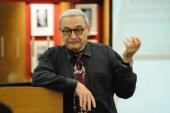
Prof. Hevia has retired and no longer directs BA theses or accepts new graduate students.
University of Chicago, PhD '86
BIOGRAPHY
James Hevia's research has focused on empire and imperialism in eastern and central Asia. Primarily dealing with the British Empire in India and southeast Asia and the Qing empire in China, the specific concerns have been with the causes and justifications for conflict; how empire in Asia became normalized within Europe through markets, exhibitions, and various forms of public media; and how the events of the nineteenth century are remembered in contemporary China. Both Cherishing Men from Afar (1995) and English Lessons (2003) focus on these issues. Subsequent research has centered on how the British in India developed and became dependent upon the production of useful knowledge about populations, geography, and pack animals to maintain their Asian empire. The first part of this project deals with military intelligence and appears in The Imperial Security State (2012). The second part of the project addresses military logistics, the uses of pack animals in warfare, the emergence of tropical veterinary medicine, and the physical transformation of the Punjab as a resource for supporting a security regime in northwest India. These subjects are taken up in Animal Labor & Colonial Warfare (2018). The third part of the project, now underway, considers the impact on India of new agricultural sciences that emerged at the end of the nineteenth century in Europe and the United States. Imperial Pests will focus attention on applied or economic botany and entomology and demonstrate how “constructive colonialism” in India situated imperial development projects in a global scientific network. It will specifically address the war on insect and weed “pests” and the long-term ecological impact on post-colonial nations-states in South Asia.
Recent Research / Recent Publications
Animal Labor & Colonial Warfare. Chicago: University of Chicago Press, 2018.
The Imperial Security State: British Colonial Knowledge and Empire-building in Asia. Cambridge: Cambridge University Press, 2012.
Yingguode Keye: Shijiu Shiji Zhongguo de Diguo Zhuyi Jiaocheng (English Lessons). Translated by Liu Tianlu. Beijing: Shehui kexue wenxian chubanshe, 2007.
English Lessons: The Pedagogy of Imperialism in Nineteenth-Century China. Durham, NC: Duke University Press and Hong Kong University Press, 2003.
Cherishing Men from Afar: Qing Guest Ritual and the Macartney Embassy of 1793. Durham, NC: Duke University Press, 1995. Chinese translation: Huairou yuanren. Beijing: Social Sciences Publishing House, 2002.
- Winner of the 1997 Joseph R. Levenson Book Prize, Association for Asian Studies.
"Tribute, Asymmetry, and Imperial Formations: Rethinking Relations of Power
in East Asia." In Past and Present in China's Foreign Policy, edited by John E. Wills. Portland, MN: Merwin Asia, 2011.
"Small Wars and Counterinsurgency." In Anthropology and Global Counterinsurgency, edited by John D. Kelly et al., 169–177. Chicago: University of Chicago Press, 2010.
"Tribute, Asymmetry, and Imperial Formations: Rethinking Relations of Power
in East Asia." Journal of American-East Asian Relations, special edition, From "Tribute System" to "Peaceful Rise": American Historians, Political Scientists, and Policy Analysts Discuss China's Foreign Relations 16, no. 1–2 (Spring–Summer 2009): 69–83.
"'The ultimate gesture of deference and debasement': Kowtowing in China." The Politics of Gesture: Historical Perspectives 203 (2009): 212–234.
"The Photography Complex: Exposing Boxer China, Making Civilization (1900–1901)." In Photographies East: The Camera and its Histories in East and Southeast Asia, edited by Rosalind Morris, 79–119. Durham, NC: Duke University Press, 2009.
"Plunder, Markets, and Museums: The Biographies of Chinese Imperial
Objects in Europe and North America." In What’s the Use of Art? Asian Visual and Material Culture in Context, edited by Morgan Pitlka, 29–141. Honolulu: University of Hawai’i Press, 2007.
"Rulership and Tibetan Buddhism in Eighteenth-Century China: Qing Emperors, Lamas and Audience Rituals." In Medieval and Early Modern Rituals: Formalized Behavior in the East and West, edited by Joelle Rollo-Koster, 279–302 Leiden: E.J. Brill, 2002.
"World Heritage, National Culture, and the Restoration of Chengde." Positions 9, no. 1 (2001): 219–244.
"Looting Beijing, 1860, 1900." In Tokens of Exchange, edited by Lydia Liu, 192–213. Durham NC: Duke University Press, 1999.
"The Archive State and the Fear of Pollution: From the Opium Wars to Fu-Manchu." Cultural Studies 12, no. 2 (1998): 234–264.
"Leaving a Brand on China." In Formations of Colonial Modernity in East Asia, edited by Tani E. Barlow, 113–140. Durham, NC: Duke University Press, 1997.
"Imperial Guest Ritual: A Translation and Introductory Comments." In Religions of China, edited by Donald Lopez, 471–487. Princeton, NJ: Princeton University Press, 1996.
"An Imperial Nomad and the Great Game: Thomas Francis Wade in China." Late Imperial China 16, no. 2 (1995): 1–22.
-
Named a 2015–16 National Humanities Center Fellow
-
Discusses "The Afterlives of Ruins: The Yuanmingyuan in China and the West" at the University of Chicago Center in Beijing [video, 66 minutes]
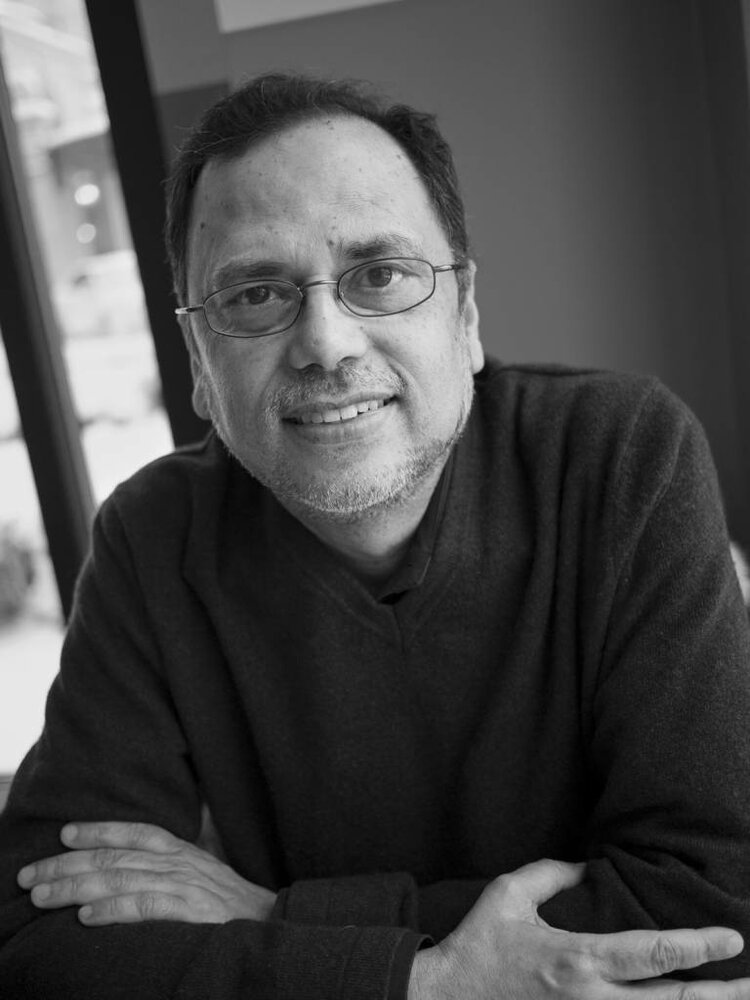
Affiliated Faculty, Department of English
Resource Faculty, Department of Comparative Literature
Resource Faculty, Department of Cinema and Media Studies
Courtesy Appointment, Law School
Faculty Fellow, Chicago Center for Contemporary Theory
Visiting Distinguished Professor, School of Culture, History, and Language, The Australian National University, Canberra
Australian National University, PhD ' 84
BIOGRAPHY
Dipesh Chakrabarty holds a BSc (physics honors) degree from Presidency College, University of Calcutta, a postgraduate Diploma in management (considered equivalent to MBA) from the Indian Institute of Management, Calcutta, and a PhD (history) from the Australian National University. He is currently the Lawrence A. Kimpton Distinguished Service Professor in History, South Asian Languages and Civilizations, and the College. He is the Faculty Director of the University of Chicago Center in Delhi, a faculty fellow of the Chicago Center for Contemporary Theory, an associate of the Departments of English, Comparative Literature, and Cinema and Media Studies, and, by courtesy, a faculty member in the Law School.
He is a founding member of the editorial collective of Subaltern Studies, a consulting editor of Critical Inquiry, and a founding editor of Postcolonial Studies. He has also served on the editorial boards of the American Historical Review and Public Culture.
Honors and Awards (Selected)
-
DLitt. (Honoris Causa), University of London (conferred at Goldsmiths), 2010
-
Honorary doctorate, University of Antwerp, Belgium, 2011
-
Honorary doctorate, École Normale Supérieure, 2021
-
Toynbee Foundation Prize, for contributions to global history, 2014
-
Tagore Memorial Prize, Government of West Bengal, 2019, for The Crises of Civilization
-
Jadunath Sarkar Memorial Gold Medal, Asiatic Society of Bengal, Kolkata, 2021
-
Fellow, American Academy of Arts & Sciences
-
Honorary Fellow, Australian Academy of the Humanities
-
Fellow, British Academy
Fellowships and Visiting Professorships (Selected)
-
Visiting Fellow, Max Planck Institute for Historical Sciences, 2005
-
American Institute of Indian Studies Senior Fellowship, 2005–6
-
Honorary Professorial Fellow, School of Historical Studies, University of Melbourne, 2007–2011
-
Fellow, Wissenschaftskolleg, Berlin, 2008–9
-
Fellow, Institute of Human Sciences (IWM), Vienna, 2010
-
Hallsworth Visiting Professor, University of Manchester, 2010
-
Dean’s Distinguished Visitor, College of Asia and Pacific, Australian National University, 2015–2027
-
Visiting Professor, École Normale Supérieure, Paris, 2019
-
Visiting Professor, The University of Technology, Sydney, Australia (to present)
Research Supervision
Chakrabarty’s current students in History and SALC work on a variety of topics: 20th-century Kerala, prostitution in British India, India-China relations in the 1950s, modern Islam in Bangladeshi history, youth culture in colonial Bengal, the history of modern Bengali music, state-making and representations of royalty in Nepal, the labor history of Bombay, and the energy history of Maharashtra.
Recently completed theses include work on epidemics in the British Empire, the history of the Sino-Indian boundary, the history of the idea of “popular sovereignty” in colonial India, Yunani medicine, the politics of water in Pakistan, India reform societies in nineteenth-century Britain, slavery in south India, environmental consciousness in Hindi literature, the East India Company in the eighteenth century, the Vaishnava movement in nineteenth-century Bengal, the history of the film industry in Bengal, the history of housing in Bombay in the early part of the twentieth century, comparative indigenous histories of Australia, Canada, and New Zealand, the culture-concept in Bengali history, visual aspects of the rebellion of 1857, the making of the Indian constitution, the sixties in Pakistan, low-caste politics in Bengal during the Partition, Assam tea-plantations, missionaries in Orissa, religious thought among Bengali Muslims in the nineteenth and early twentieth centuries, mass politics in Bangladesh, labor in Delhi, the history of the Anglo-Indian communities in India, the history of photo-journalism in Bengal, the evolution of the qazi and mufti in British India, and the intellectual history of Mughal India.
Recent Research / Recent Publications
-
Rethinking Working-Class History: Bengal 1890–1940 (Princeton, 1989; 2000)
-
Provincializing Europe: Postcolonial Thought and Historical Difference (Princeton, 2000; second edition, 2008) – translated into Italian, Spanish, French, Polish, Turkish, Korean, and Russian
-
Habitations of Modernity: Essays in the Wake of Subaltern Studies (Chicago, 2002) – translated into Arabic (Kalima, 2011)
-
The Calling of History: Sir Jadunath Sarkar and His Empire of Truth, c. 1900–1950 (Chicago, 2015)
-
The Crises of Civilization: Exploring Global and Planetary Histories (Delhi: Oxford, 2018) with Ranajit Dasgupta, Some Aspects of Labour History of Bengal in the Nineteenth Century: Two Views (Delhi: Oxford, 2019) – translated into Bengali
-
The Climate of History in a Planetary Age (Chicago, 2021; New Delhi: Primus, 2021) – Translated into German, Spanish, and French with Portuguese, Korean, and Chinese translations forthcoming
-
One Planet, Many Worlds: The Climate Parallax (Brandeis, 2023) – Korean translation forthcoming
-
Lectures in the Human Sciences, Institute for the Human Sciences (IWM), Vienna, 2014
-
Radhakrishnan Memorial Lectures at All Souls’ College, Oxford, 2014
-
Tanner Lectures in Human Values, Yale, 2015
-
Mandel lectures in the Humanities, Brandeis, 2017
-
History and Theory annual lecture, Harvard, 2017
-
inaugural Halle Lectures in the Humanities, Halle, 2018
-
William James Lecture, Harvard Divinity School, 2019
-
Sixth Annual Ikeda Lecture on Peace and Harmony, Singapore Management University, Singapore, 2020
-
inaugural Contributions to Indian Sociology Lecture, Indian Institute of Economic Growth, Delhi, 2021
-
Golden Jubilee lecture, Centre for Studies in Social Sciences, Kolkata, 2023
-
What We Have in Common in this Fragmented World,” General Conference, UNESCO, 2023
-
keynote, European Congress of Theology, Heidelberg, 2024
-
with Shahid Amin, Subaltern Studies IX (Delhi: Oxford, 1996)
-
with Carol Breckenridge, Homi Bhabha, and Sheldon Pollock, Cosmopolitanism (Duke, 2000)
-
with Rochona Majumdar and Andrew Sartori, From the Colonial to the Postcolonial: India and Pakistan in Transition (Delhi: Oxford, 2007)
-
with Bain Attwood and Claudio Lomnitz, “The Public Life of History,” a special issue of Public Culture (2008)
-
with Henning Trueper and Sanjay Subrahmanyam, Historical Teleologies in the Modern World (Bloomsbury, 2015)
-
Itihasher janajibon o anyanyo probondho [The Public Life of History and Other Essays] (Kolkata: Ananda, 2011)
-
Monorather Thikana [Where the Mind Travels], ed. Sanjib Mukhopadhyay (Kolkata: Anustup, 2018) – Shortlisted for the Ananda literary prize in Calcutta in 2019
-
Bondhur chithi Bondhuke [Letters Between Friends] (Kolkata: Anustup, 2019) – correspondence between Dipesh Chakrabarty and the deceased Bengali writer Raghab Bandyopadhyay, 2003–2016
-
Smriti, Satta, Songlap [Memories, Identities, and Conversations] (Calcutta: Nirjhor Publications, 2023)
-
“The Climate History: Four Theses,” Critical Inquiry (Winter 2009): 197–222. Translated as “Le Climat de L'Histoire: Quatre Theses.” La Revue Internationale 5 (January-February 2010): 22–31. Also carried in Eurozine (October 30, 2009), and translated into German, Spanish, Hungarian, Malayalam, Korean, and Chinese.
-
“From Civilization to Globalization: The West as a Signifier in Indian Modernity,” Inter–Asian Cultural Studies 13, no. 1 (2012). French translation published in La Revue des Libres (January 31, 2012).
-
“Postcolonial Studies and the Challenge of Climate Change,” New Literary History 43, no. 1 (Winter 2012): 1–18.
-
“Friendships in the Shadow of Empire: Rabindranath Tagore’s Reception in Chicago, c. 1913–1932,” Modern Asian Studies 48, no. 5 (September 2014): 1161–1187.
-
“Climate and Capital: On Conjoined Histories,” Critical Inquiry (Fall 2014): 1–23.
-
“The Human Significance of the Anthropocene,” in Reset Modernity! ed. Bruno Latour (Cambridge, MA: MIT Press, 2016).
-
“The Politics of Climate Change Is More Than the Politics of Capitalism,” Theory, Culture, & Society 34, nos. 2-3 (March-May 2017): 25–37.
-
“Between World History and Earth History: Anthropocene Time,” History and Theory (March 2018): 5–32.
-
“The Planet: An Emergent Humanist Category,” Critical Inquiry 46, no. 1 (Autumn 2019): 1–31.
-
“The Human Sciences and Climate Change: A Crisis of Anthropocentrism,” Science and Culture 86, nos. 1–2 (January–February, 2020): 46–8.
-
with Bruno Latour, “Conflicts of Planetary Proportions – A Conversation,” Journal of the Philosophy of History 14 (2020): 419-454.
-
“Planetary Humanities: Straddling the Postcolonial/Decolonial Divide,” Daedalus 151, no.3 (Summer 2022): 222-233.
-
Saurabh Dube, Ajay Skaria, and Sanjay Seth, eds., Dipesh Chakrabarty and the Global South: Subaltern Studies, Postcolonial Perspectives, and the Anthropocene (Routledge, 2020)
-
special issue, Práticas da História, No. 11 (2020), marking the twentieth year since the publication of Provincializing Europe
-
Ahmed Kamal, ed., Somoyer Kuyashay [In the Mists of TIme] (Dhaka: University Press, 2023)
“Tagore in Our Times and His” (Inaugural Lecture, The Tagore Program, University of California, Berkeley, February 22, 2020)
“The Planet: An Emergent Matter of Spiritual Concern?” (William James Lecture, Harvard Divinity School, May 1, 2019)
The Fifth Annual Mandel Lectures in the Humanities (Brandeis University, March 13, 14, and 16, 2017)
“Talk on Climate Change and the Humanities” (talk presented at Centre for Policy Research, New Delhi, March 1, 2016)
Tanner Lectures on Human Values (Yale University, February 18–20, 2015)
“Rethinking Working Class: Postcolonial Perspectives on a Revolutionary Concept” (Rosa-Luxemburg-Stiftung, October 29, 2014)
30 Years of Elementary Aspects of Peasant Insurgency in Colonial India, Centre for the Study of Developing Societies, Feb. 13, 2013
The Anthropocene Project: An Opening, Haus der Kulturen der Welt, Berlin, Jan. 10–13, 2013
“The Calling of History: Sir Jadunath Sarkar and the Birth of Historical Research in India” (paper presented at the annual B.N. Ganguli Memorial Lecture series at the Centre for the Study of Developing Societies, Delhi, India, October 30, 2012)

Yale University, PhD '09
BIOGRAPHY
I am an historian of modern Russia, with a special interest in nineteenth- and twentieth-century politics, culture, and ideas. My work explores how Russia's peculiar political institutions—and its status as a multiethnic empire—shaped public opinion and political cultures. It also interrogates Russia's relationship with the outside world, asking where the Russian experience belongs in the broader context of European and global history. In addition, I am interested in the theory and practice of the digital humanities.
My most recent book, Utopia’s Discontents: Russian Exiles and the Quest for Freedom, 1830–1930, was published by Oxford University Press in 2021. It is the recipient of the 2022 Wayne S. Vucinich Book Prize from ASEEES, which recognizes the most important contribution in any discipline of Slavic studies. The book provides the first synthetic account of Europe's "Russian colonies"—boisterous and politically fractious communities formed by exiles from the Russian empire that emerged across the continent in the nineteenth and early twentieth centuries. The book treats the "Russian colonies" as utopian communities in which radical activists worked to transform social relations and individual behavior, and it explores how these unique spaces influenced Russian political imaginaries as well as the culture of their host societies. Ultimately, the project offers a bold reassessment of Russia's relationship with Europe, the origins of the Russian revolution, and the creation of the Bolshevik regime.
My first book, Children of Rus’: Right-Bank Ukraine and the Invention of a Russian Nation, was published by Cornell University Press in 2013 and released in paperback in 2017. Children of Rus' argues that it was on the extreme periphery of the tsarist empire—a region that today is located at the very center of the independent nation of Ukraine—that Russian nationalism first took shape and assumed its most potent form. The book reconstructs how nineteenth-century provincial intellectuals came to see local folk customs as the purest manifestation of an ancient nation that unified all the Orthodox East Slavs, and how they successfully propagated their ideas across the empire through lobbying and mass political mobilization. In addition, it reconceptualizes state-society relations under tsarism, showing how residents of a diverse and contested peripheral region managed to shape political ideas and identities across Russia—and even beyond its borders. Children of Rus' was named a Choice Outstanding Academic Title for 2013.
I am currently working on a new history of the origins of the Protocols of the Elders of Zion written for a popular audience. This book offers a new account of how this notorious text came to be, and it asks what history's greatest conspiracy theory can tell us about the present moment, when conspiratorial thinking is again on the rise in society and politics.
My current research is enriched by technology, and I am interested in thinking through how historians can use digital tools to open new avenues for exploration and to communicate their findings to other scholars and the general public. I am particularly interested in using geo-spatial analysis to analyze flows of people, ideas, and commodities over time and across space. For examples of my (ongoing) work in digital cartography, see my Utopia's Discontents website in development and my study of émigré publications.
I have held research fellowships at Columbia, Harvard, and the Cullman Center for Scholars and Writers at the New York Public Library. My research has been funded by ACLS, IREX, Fulbright-Hays, and the NEH.
I am represented by Kathleen Anderson (kathleen@andersonliterary.com) of Anderson Literary Management.
Recent Research / Recent Publications
-
Utopia’s Discontents: Russian Émigrés and the Quest for Freedom, 1830s-1930s, Oxford University Press, 2021. Awarded the 2022 Wayne S. Vucinich Prize.
-
"'The Franco-Russian Marseillaise': International Exchange and the Making of Anti-Liberal Politics in Fin-de-Siècle France." Journal of Modern History 89, no. 1 (Mar. 2017): 39–78.
-
"Children of Rus’: Nationalist Imaginations in Right-Bank Ukraine." In The Future of the Past: New Perspectives in Ukrainian History, edited by Serhii Plokhy. Cambridge, MA: Harvard University Press, 2016.
-
"Making and Breaking the Russian Empire: The Case of Kiev’s Shul’gin Family." In Imperiale Biographien: Elitekarrieren im Habsburger, Russischen und Osmanischen Vielvölkerreich (1850–1918), edited by Malte Rolf and Tim Buchen, 178–98. Munich: Oldenbourg-Verlag, 2015.
-
"Intimacy and Antipathy: Russian-Ukrainian Relations in Historical Perspective." Kritika 16, no. 1 (Win. 2015): 121–28.
-
Children of Rus': Right-Bank Ukraine and the Invention of a Russian Nation. Ithaca, NY: Cornell University Press, 2013.
-
"Modernist Visions and Political Conflict in Late Imperial Kiev." In Races to Modernity: Metropolitan Aspirations in Eastern Europe, 1890–1940, edited by Jan C. Behrends and Martin Kolrausch. New York: Central European Press, 2014.
-
"Ukrainophile Activism and Imperial Governance in Russia's Southwestern Borderlands." Kritika 13, no. 2 (Spr. 2012): 301–26.
-
"Migration, Mobility, and Political Conflict in Late Imperial Kiev." In Russia on the Move: Essays on the Politics, Society and Culture of Human Mobility, 1850–Present, edited by John Randolph and Eugene Avrutin. Urbana: University of Illinois Press, Studies of World Migrations Series, 2011.
-
Writes op-ed on seizing Russian oligarchs' wealth for The Atlantic
-
Interviewed for Meduza on Putin's presentation of Ukrainian and Soviet history
-
Quoted in USA Today article on how historians see the invasion of Ukraine
-
Quoted in Politifact on the history of Russian imperialism
-
Interviewed for The World on the entangled histories of Russia and Ukraine
-
Writes op-ed on immigration for The Washington Post
-
Quoted in Chicago Tribune article on the meaning of "concentration camp"
-
Named a 2018–19 Cullman Center Fellow at the New York Public Library
-
Review of AHA session on "History and Historians in the Ukraine Crisis" by Sarah Fenton
-
Quoted in National Geographic article on Ukrainian-Russian conflict
-
Children of Rus' reviewed in the Moscow Times

University of California, Berkeley, PhD '10
BIOGRAPHY
I specialize in the history of modern Russia and the Soviet Union, with a particular interest in Soviet culture, society, and their international context. Currently, I am at work on two book projects.
The first, Weary Sun, explores the history of tango, its creators and audiences, in Stalinist Russia and Eastern Europe. Soviet tango was made in Riga and Warsaw. Struck by the connections and exchanges between Soviet and émigré cultures, I focus on the largely unexamined Russian-speaking communities at the borders of the Soviet Union. Tango occupied a central place in the Soviet aural world, yet it fits uncomfortably in the dominant narratives and thus calls for a rethinking of Stalinist culture. This research reconstructs the sounds of Soviet courtyards, communal apartments, southern resorts, movie theaters, and parks of "rest and culture," where people encountered the tango most frequently. I seek to explain tango’s aesthetic and ideological work among other representations of socialist paradise.
Another project, The Entangled Histories of Soviet Newspeak and the Russian Language in the Twentieth Century, describes the rise and fall of Soviet newspeak as a language intricately bound to the daily uses and reforms of Russian itself. I see the Russian language as a field for defining social status and cultural authority in a post-revolutionary world. Multiple players were active in this field, including ordinary speakers of Russian and writers who experimented with the vernacular.
My first book, To See Paris and Die: The Soviet Lives of Western Culture (Harvard, 2018), is a history of the Soviet opening to the West during the 1950s and 1960s. The book investigates why and how Western cultural imports arrived in the Soviet Union on an unprecedented scale, as well as what meanings they acquired for Soviet audiences. To See Paris and Die brings together the ideas that justified cultural exchange and the diplomatic negotiations that made it possible, the secrets of museum storage rooms and the publicity of radio broadcasts, lavish international film festivals and backwater countryside screenings, enormous print runs and home-made books, state-sponsored travel and emigration. Analyzing how the Soviets received Western novels, paintings, and films, the book takes translation as its central theme — a mechanism of cultural transfer, a method of habituation of foreign imports, and a metaphor for transnational interactions. When they first appeared en masse, Western imports were extraordinary, but in the process of cross-cultural transfer that began in the mid-1950s, the foreign became quotidian—an indiscernible part of late Soviet culture and daily life.
My research has been supported by the National Endowment for the Humanities, the Kennan Institute, the American Philosophical Society, the National Council for Eurasian and East European Research, the Social Science Research Council, American Councils for International Education, the Mabelle McLeod Lewis Foundation, and the Fulbright-Hays program, among others.
Recent Research / Recent Publications
To See Paris and Die: The Soviet Lives of Western Culture. Cambridge, MA: Harvard University Press, 2018.
-
Best Book in Cultural Studies Prize, American Association of Teachers of Slavic and East European Languages, 2019
-
Laura Shannon Prize in Contemporary European Studies, Nanovic Institute, University of Notre Dame, 2020
-
Wayne S. Vucinich Book Prize, Association for Slavic, East European, and Eurasian Studies, 2019
-
Marshall D. Shulman Book Prize, Association for Slavic, East European, and Eurasian Studies, 2019
-
Honorable Mention, Aldo and Jeanne Scaglione Prize for Studies in Slavic Languages and Literatures, Modern Language Association, 2019
-
Shortlist, Council for European Studies Book Award, 2020
-
Shortlist, Best First Book Prize, American Association of Teachers of Slavic and East European Languages, 2019
-
Shortlist, Pushkin House Russian Book Prize, Pushkin House, London, 2019
The Thaw: Soviet Society and Culture during the 1950s and 1960s, edited by Denis Kozlov and Eleonory Gilburd. Toronto: University of Toronto Press, 2013.
-
"Seminal Years and the Long Arc of the Moral Universe [review essay]." Kritika: Explorations in Russian and Eurasian History 20, no. 3 (Summer 2019), 613-626.
-
"The Thaw as an Event in Russian History [coauthored with Denis Kozlov]." In The Thaw: Soviet Society and Culture during the 1950s and 1960s, edited by Denis Kozlov and Eleonory Gilburd, 18–81. Toronto: University of Toronto Press, 2013.
-
"The Revival of Soviet Internationalism in the 1950s." In The Thaw: Soviet Society and Culture during the 1950s and 1960s, edited by Denis Kozlov and Eleonory Gilburd, 262–401. Toronto: University of Toronto Press, 2013.
-
"Picasso in Thaw Culture." Cahiers du monde russe 47, no. 1–2 (Jan.–July 2006): 65–108
-
"Books and Borders: Sergei Obraztsov and Soviet Travels to London in the 1950s." In Turizm: The Russian and East European Tourist Under Capitalism and Socialism, edited by Anne Gorsuch and Diane Koenker, 227–47. Ithaca and London: Cornell University Press, 2006.
Published To See Paris and Die: The Soviet Lives of Western Culture (Harvard, 2018)
-
Wins ASEEES's Wayne S. Vucinich Book Prize and Marshall Shulman Book Prize
-
Rachel Polonsky, "When the Soviets Shimmied," New York Review of Books, Aug. 15, 2019.
-
Michele A. Berdy, "Gilburd Reveals Second Lives Behind the Iron Curtain," Moscow Times, May 25, 2019.
-
Jennifer Wilson, "How to Think Freely," New Republic, May 9, 2019.
-
Pushkin House 2019 Russian Book Prize (shortlist)
-
Harry Robertson, Book Review, Financial Times, Dec. 14, 2018.
-
Interview with Anna Chernyakhovskaya, Higher School of Economics, National Research University, Moscow, Apr. 4, 2018.
-
Interview with Alexander Kan, BBC Russian Service, June 8, 2019

Harvard University, PhD '95
RESEARCH INTERESTS
Twentieth-century US international history; global history of human-rights politics; postcolonial Southeast Asia
BIOGRAPHY
Mark Philip Bradley is the author of The World Reimagined: Americans and Human Rights in the Twentieth Century (2016), Vietnam at War (2009), and Imagining Vietnam and America: The Making of Postcolonial Vietnam (2000), which won the Harry J. Benda Prize from the Association for Asian Studies. He is the coeditor of Making the Forever War (2021), Familiar Made Strange: American Icons and Artifacts after the Transnational Turn (2015), Making Sense of the Vietnam Wars (2008), and Truth Claims: Representation and Human Rights (2001). Bradley's work has appeared in the American Historical Review, Journal of American History, the Journal of World History, Diplomatic History, and Dissent. His current project is an intellectual and cultural history of the global South under contract with Yale University Press.
A recipient of fellowships from the John Simon Guggenheim Memorial Foundation, the American Council of Learned Societies, the National Endowment for the Humanities, and Fulbright-Hays, Bradley was appointed editor of the American Historical Review in 2021. He has served as the elected president of the Society for Historians of American Foreign Relations, general editor for the four volume Cambridge History of America and the World and coeditor of the Cornell University Press book series, The United States in the World.
Recent Research / Recent Publications
-
The World Reimagined: Americans and Human Rights in the Twentieth Century. Cambridge: Cambridge University Press, 2016.
-
Vietnam at War: The Search for Meaning. New York: Oxford University Press, 2009.
-
Imagining Vietnam and America: The Making of Postcolonial Vietnam, 1919–1950. Chapel Hill: University of North Carolina Press, 2000.
-
The Familiar Made Strange: American Icons and Artifacts after the Transnational Turn, coeditor with Brooke L. Blower. Ithaca, NY: Cornell University Press, 2015.
-
Making Sense of the Vietnam Wars: Transnational and International Perspectives, coeditor with Marilyn B. Young. New York: Oxford University Press, 2008.
-
Truth Claims: Representations and Human Rights, coeditor with Patrice Petro. New Brunswick, NJ: Rutgers University Press, 2002.
-
“Making Tuan Andrew Nguyen’s The Spector of the Ancestors Becoming,” American Historical Review 127.3 (September 2022): 1312-18.
-
“What is America and the World?”, Cambridge History of America and the World, volume 1 (Cambridge: Cambridge University Press, 2021): 1-7.
-
“The Anecdote,” co-written with Lee Weng-Choy, Portable Gray 4.2 (Fall 2021): 310-18.
-
"Understanding the Rise of the Global South in Pandemic Times." Diplomatic History 45, no. 3 (2021): 460-67.
-
"Making Peace as a Project of Moral Reconstruction." In The Cambridge History of the Second World War, vol. 3, edited by Michael Geyer and Adam Tooze, 528–551. Cambridge: Cambridge University Press, 2015.
-
Cowritten with Viet Thanh Nguyen. "Vietnam: American and Vietnamese Public Diplomacy, 1945–2010." In Adversarial States, US Foreign Policy, and Public Diplomacy, edited by Geoffrey Wiseman, 110–139. Stanford: Stanford University Press, 2015.
-
“American Vernaculars: The United States and the Global Human Rights Imagination (Presidential Address),” Diplomatic History 38, no. 1 (Jan. 2014): 1–21.
-
“The Charlie Maier Scare: The Historiography of American Foreign Relations, 1959–1980.” In America in the World: The Historiography of American Foreign Relations since 1941, 2nd ed., edited by Frank Costigliola and Michael J. Hogan, 9–29. Cambridge: Cambridge University Press, 2013.
-
“Internationalism.” In The Oxford Encyclopedia of American Military and Diplomatic History, edited by Timothy J. Lynch, 517–23. New York: Oxford University Press, 2013.
-
“The United States and the Global Human Rights Politics in the 1940s.” In Civil Religion, Human Rights and International Relations, edited by Helle Porsdam, 118–35. London: Edward Elgar, 2012.
-
“Writing Human Rights History.” Il Mestiere di storico 3, no. 2 (2011): 13–30.
-
“Approaching the Universal Declaration of Human Rights.” In The Human Rights Revolution: An International History, edited by Akira Iriye, Petra Goode, and William Hitchcock, 327–43. New York: Oxford University Press, 2011.
-
“Setting the Stage: Vietnamese Revolutionary Nationalism and the First Vietnam War.” In The Columbia History of the Vietnam Wars, edited by David Anderson, 93–119. New York: Columbia University Press, 2011.
-
"Decolonization, Revolutionary Nationalism, and the Cold War, 1919-1962." In The Cambridge History of the War, vol. 1, edited by Melvyn P. Leffler and Odd Arne Westad. Cambridge: Cambridge University Press, 2009.
-
"The Ambiguities of Sovereignty: The United States and the Global Rights Cases of the 1940s." In Art of the State: Sovereignty Past and Present, edited by Douglas Howland and Luise White. Bloomington: Indiana University Press, 2008.
-
"Introduction." In Human Rights and Revolution, edited by Jeffrey N. Wasserstrom, Lynn Hunt, and Greg Grandin. New York: Rowman and Littlefield, 2007.
-
"Interchange: Legacies of the Vietnam Wars." Journal of American History 43, no. 2 (Sept. 2006): 452–91.
-
"Making Sense of the French War: Postcolonial Modernity and Vietnam, 1946-1954." In Indochina in the Balance: New Perspectives on the First Vietnam War, edited by Mark Lawrence and Fredrik Logevall, 16–40. Cambridge, MA: Harvard University Press, 2006.
-
"The Imperial and the Postcolonial." In Palgrave Advances in International History, edited by P. Finney, 247–266. London and New York: Palgrave/Macmillan Press, 2005.
-
"Becoming Van Minh: Civilizational Discourse and Rights Talk in Colonial Vietnam." Journal of World History 15, no. 1 (Mar. 2004): 65–83.
-
"Franklin Roosevelt, Trusteeship and US Exceptionalism: Reconsidering American Visions of Postcolonial Vietnam." In The Transformation of Southeast Asia: International Perspectives on Decolonization, edited by Marc Frey, Ronald W. Preussen, and Tan Tai Yong, 197–212. Armonk: M.E. Sharpe, 2003; and in A Companion to the Vietnam War, edited by Marilyn B.Young and Robert Buzzanco, 130–145. New York: Blackwell Publishing, 2002.
-
"Contests of Memory: Remembering and Forgetting War in the Contemporary Vietnamese Cinema." In The Country of Memory: Remaking the Past in Late Socialist Vietnam, edited by Hue-Tam Ho Tai, 196–226. Berkeley: University of California Press, 2001.
-
"Slouching Toward Bethlehem: Culture, Diplomacy, and the Origins of the Cold War in Vietnam." In Cold War Constructions: The Political Culture of United States Imperialism, 1945–1966, edited by Christian G. Appy, 11–34. Amherst: University of Massachusetts Press, 2000.
-
Reviews Ken Burns and Lynn Novick’s The Vietnam War, American Historical Review 124, no. 1 (Feb. 2019).
-
"The Universal Declaration of Human Rights at 70," Perpectives on History, Dec. 10, 2018
-
Appointed Deputy Dean of the Social Sciences
-
Discusses "Human Rights in the Era of Trump" for AHA Today (blog)
-
Talks on "American Views on Global Human Rights," Woodrow Wilson Center [video, 88 minutes]
-
Authors The World Reimagined (Cambridge, 2016)
-
Convenes “Colloquy: Queering America and the World.” Diplomatic History 40, no. 1 (Jan. 2016)

Harvard University, PhD' 90
BIOGRAPHY
I am a historian of Britain and its Empire, of comparative revolutions, comparative empires, and of northern Europe more broadly. I am both a deeply committed archival historian and a scholar who believes profoundly that historians should engage with the social sciences. My first book, Protestantism and Patriotism, was an entangled and comparative study of English and Dutch politics, culture, and society in the mid-seventeenth century. I traced the decline of apocalyptic thinking and the rise of notions of political economy in England and the Dutch Republic. My second major monograph, 1688: The First Modern Revolution, offered both a major revisionist account of England's Glorious Revolution and a reappraisal of the literature on revolutions more broadly. I showed that far from being an unrevolutionary revolution, the Revolution of 1688 radically transformed English state and society. The revolution, I suggest, can only be understood by placing it in a European and global context. Since 1688 was a radical revolution, I suggest, it is imperative to rethink the nature of revolutions since so much of that literature assumed that the later eighteenth-century French Revolution was the first modern revolution. My third monograph, The Heart of the Declaration, argued that by placing the American Revolution and its seminal document, the Declaration of Independence, in an imperial rather than proto-national context it becomes clear that Americans broke away from Britain not because they resented the imperial state but because they wanted a different kind of state—one that would actively promote social and economic prosperity and equality.
I am currently engaged in a number of research projects. For the past decade I have been working on a Global History of the British Empire, ca. 1650–1784. This book, based on research in a wide range of European, North American, and West Indian archives, insists that the British imperial state was just as institutional strong if structurally distinct, from its rivals. Throughout the empire Britons debated and fought over the kind of imperial state they wanted. Some wanted to focus on a political economy that privileged colonial production over one that emphasized colonial consumption; some wanted an empire that favored England, while others thought the empire should be organized as a confederation; some thought chattel slavery was essential to the prosperity of the empire while others decried cattle slavery as economically and morally deleterious; some thought the empire should protect and promote the development of indigenous peoples, while others thought indigenous peoples were a barrier to imperial development. I insist that accounts of the colonies that focus on the binary relationship between a particular colony or set of colonies and Britain will necessarily misunderstand that relationship. The British Empire can only be understood as a global phenomenon. It is essential to think the empire whole. I am working on a second monograph, Partners in Revolution, that compares the Irish Revolution of 1782 and the American Revolution. I highlight the social, cultural, and ideological similarities between the Irish and American situations. The book explains why Americans severed ties with the British Empire and the Irish did not. I suggest that one of the consequences of the abortive Irish Revolution was that the re-emergence of confessional divisions in Ireland. Finally, I am working on a set of essays (maybe a book) with James Robinson of Harris Public Policy, trying to explain British divergence: why was it that Britain, and not China, India, France, or the Dutch Republic, became the first industrial nation? Why did the British state take the distinctive form that it did?
My research has been supported over the years with fellowships from the Harvard Society of Fellows, the ACLS, the Guggenheim Foundation, the Dorothy and Lewis B. Cullman Center, the Institute for Advanced Studies at Princeton, the Woodrow Wilson Foundation, and the American Philosophical Society. I have been a visitor at All Souls College (Oxford), EHESS (Paris), IMT (Lucca) and the University of Warwick.
I am deeply committed to both undergraduate and graduate education. I am happy to supervise senior theses and doctoral dissertations on any topic in British history, the history of the British Empire, Atlantic history, Dutch history, political economy, revolutions, comparative empires, history of European ideas, seventeenth- and eighteenth-century religious history, and the cultural history of seventeenth- and eighteenth-century Europe.
I have supervised over twenty doctoral dissertations covering a wide range of topics. Some topics have included the origins of humanitarianism in seventeenth- and eighteenth-century Europe, the rise of the Patriot party in the eighteenth-century British Empire, the emergence of associational life in the British Empire, the East India Company and the emergence of British India, politics of the navy and the British Empire, the transformation of British India in the late eighteenth century, the Anglo-French-Indian struggle for the Ohio Valley, British imperial indigenous policy in Scotland, North America, and Bengal, the high church reaction to the Revolution of 1688, the remaking of the Church of England after the Act of Toleration, the Scottish Kirk in the early eighteenth century, the rise of opera in Britain, the making of the English Caribbean in the late seventeenth century, British monetary policy in the late seventeenth and eighteenth centuries, the rise of slave labor in the British Empire, Leisler's Rebellion and its consequences, British party politics in the early eighteenth century, the persistence of Catholicism in the British Empire, and many more.
I am a co-convenor of the History and Social Sciences and the Empires and the Atlantics forums.
Recent Research / Recent Publications
The Heart of the Declaration: The Founders’ Case for Activist Government. New Haven, CT: Yale University Press,, 2016.
co-edited with Peter Lake. The Politics of the Public Sphere in Early Modern England: Public Persons and Popular Spirits. Manchester: Manchester University Press, 2012
1688:The First Modern Revolution. New Haven, CT: Yale University Press, 2011.
- Morris D. Forkosch Prize, American Historical Association
- Gustav Ranis International Book Prize, Yale MacMillan Center
- Bronze Medal, Independent Publisher Book Awards
England’s Glorious Revolution 1688–1689: A Brief History with Documents. Boston: Bedford/St. Martin's, 2006
co-edited with Alan Houston. A Nation Transformed: England after the Restoration. Cambridge: Cambridge University Press, 2001.
Protestantism and Patriotism: Ideologies and the Making of English Foreign Policy, 1650–1668. Cambridge: Cambridge University Press, 1996.
-
Co-edits volume The Politics of the Public Sphere in Early Modern England (Manchester University Press, 2019)
-
Discusses "How the Radical Aims of the American Revolutionaries Are Relevant Today," Valdai Discussion Club, June 8, 2017 [video, 94 mins]
-
Delivers "The Founders' Case for Strong Government," George Washington Forum, Ohio University, February 23, 2017 [video, 81 mins]
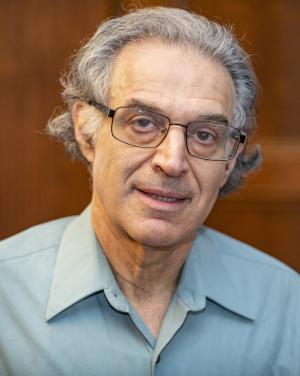
Yale University, PhD' 88
BIOGRAPHY
Kenneth Pomeranz is a University Professor of History and in the College; he previously taught at the University of California, Irvine. His work focuses mostly on China, though he is also very interested in comparative and world history. Most of his research is in social, economic, and environmental history, though he has also worked on state formation, imperialism, religion, gender, and other topics. His publications include The Great Divergence: China, Europe, and the Making of the Modern World Economy (2000), which won the John K. Fairbank Prize from the AHA, and shared the World History Association book prize; The Making of a Hinterland: State, Society and Economy in Inland North China, 1853–1937 (1993), which also won the Fairbank Prize; The World that Trade Created (with Steven Topik, first edition 1999, 3rd edition 2012), and a collection of his essays, recently published in France. He has also edited or co-edited five books, and was one of the founding editors of the Journal of Global History. He is a fellow of the American Academy of Arts and Sciences and has received fellowships from the Guggenheim Foundation, the American Philosophical Society, American Council of Learned Societies, the Institute for Advanced Studies, the National Endowment for the Humanities, and other sources. His current projects include a history of Chinese political economy from the seventeenth century to the present, and a book called Why Is China So Big? which tries to explain, from various perspectives, how and why contemporary China's huge land mass and population have wound up forming a single political unit.
Recent Research / Recent Publications
Coeditor with J. R. McNeill. Production, Destruction, and Connection, 1750–Present. Part 1: Structures, Spaces, and Boundary Making, The Cambridge World History, vol. VII (Cambridge: Cambridge University Press, 2015.
Coeditor with J. R. McNeill. Production, Destruction, and Connection, 1750–Present. Part 2: Shared Transformations? The Cambridge World History, vol. VII (Cambridge: Cambridge University Press, 2015.
Coeditor with Laura J. Mitchell and James B. Given. Worlds Together, Worlds Apart: A Companion Reader. New York: W.W. Norton, 2011.
La Force de L’Empire: Révolution industrielle et écologie, ou pourquoi l’angleterre a fait mieux que la Chine. Edited, with an introduction, by Philippe Minard. Alfortville: Éditions ère, 2009.
The book collects various pieces of my work previously published in English, with some previously unpublished material added in Chapter II.
Editor, The Pacific in the Age of Early Industrialization. Farnham: Ashgate Publishing, 2009.
Coeditor with Kate Merkel-Hess and Jeffrey Wasserstrom. China in 2008: A Year of Great Significance. Washington, DC: Rowman and Littlefield, 2009.
"Introduction: the Environment and World History" and "The Transformation of China's Environment, 1500–2000." In The Environment and World History, 1500–2000. Coedited with Edmund T. Burke III, 3–32, 118–164. Berkeley: University of California Press, 2009.
Coeditor with John McCusker, Stanley Engerman, David Hancock, and Lewis Cain. Encyclopedia of the History of World Trade. Farmington Hills, MI: Thomson Gale 2005.
The Great Divergence: China, Europe and the Making of the Modern World Economy. Princeton, NJ: Princeton University Press, 2000.
Coauthor with Steven Topik. The World that Trade Created: Society, Politics and an Emerging World Economy, Armonk, NY: M.E. Sharpe, 1999; fourth edition, 2017.
The Making of a Hinterland: State, Society and Economy in Inland North China, 1853–1937. Berkeley: University of California Press, 1993.
-
"Repenser le changement économique de longue durée: La Chine, l’Europe, et l’historie comparée." In L'histoire économique en mouvement: entre héritages et renouvellements, edited by Jean Claude Daumas, 293–310. Villieneuve d’Ascq: Presses universitaires du Septentrion, 2012.
-
"Contemporary Development and Economic History: How Do We Know What Matters?" Economic History of Developing Regions, special issue for World Economic History Congress 27, no. 1 (2012): 134–145.
-
"The Great Divergence debate at 10—and at 250." Historically Speaking 12, no. 4 (September/October, 2011). Response to a forum on the tenth anniversary of the publication of The Great Divergence.
-
"Areas, Networks, and the Search for 'Early Modern' East Asia." In Comparative Early Modernities, edited by David L. Porter. London: Palgrave, 2012.
-
"Labor-Intensive Industrialization in the Yangzi Delta: Late Imperial Patterns and their Modern Fates." In Labor-Intensive Industrialization in Global History, edited by Kaoru Sugihara and G.M. Austin. London: Routledge, 2012.
-
Coauthor with Daniel Segal. "World History: Departures and Variations." In A Companion to World History, edited by Douglas Northrop. New York: Wiley-Blackwell, 2012.
-
"Advanced Agriculture." In The Oxford Handbook of World History, edited by Jerry H. Bentley, 246–266. Oxford: Oxford University Press, 2011.
-
"Labeling and Analyzing Historical Phenomena: Some Preliminary Challenges." Cliodynamics: The Journal of Theoretical and Mathematical History 2, no. 1 (March 2011): 3–27.
-
"Commerce." In The Oxford Concise Companion to World History, edited by U.C. Rublack, 105–128. Oxford, Oxford University Press, 2011.
-
"Their Own Path to Crisis? Social Change, State-Building, and the Limits of Qing Expansion, ca. 1770–1840." In The Age of Revolutions in a Global Context, edited by David Armitage and Sanjay Subrahmanyam, 189–208. New York: Palgrave, 2010.
-
"Putting Modernity in Its Place(s): Reflections on Jack Goody's The Theft of History." Theory, Culture, and Society 26, no. 7/8 (December 2009): 32–51.
-
"Shang xia Taishan—Zhongguo minjian xinyang zhengzhi zhong de Bixia yuanjun (yue gongyuan 1500 nian zhi 1949 nian." (Up and Down Mt. Tai—Bixia Yuanjun in the Politics of Chinese Popular Religion, ca 1500–1949) Xin shixue 20, no. 4 (December, 2009): 169–215.
-
"Le machinisme induit-il une discontinuité historique? Industrialisation, modernité précoce et formes du changement économique dans l’histoire globale." In Histoire globale, mondialisations, capitalisme, edited by P. Beaujard, L. Berger, and P. Norel, 335–373. Paris: La Découverte, 2009.
-
"Calamities Without Collapse: Environment, Economy and Society in China, ca. 1800–1949." In Questioning Collapse, edited by Patricia McAnany and Norman Yoffee. Cambridge: Cambridge University Press, 2009.
-
"The Great Himalayan Watershed: Agrarian Crisis, Mega-Dams, and the Environment." New Left Review 58 (July/August 2009): 5–39 (short version). Longer version published in The Asia-Pacific Journal: Japan Focus (July 27, 2009) http://japanfocus.org/-Kenneth-Pomeranz/3195. Abridged version published in Engineering World (August/September 2009): 32–42.
-
"World History and Environmental History: Introducing an Agenda," and "China's State, Economy and Environment in Global Perspective, 1400–2000." In Environmental History and World History, edited by both in Edmund Burke III and Kenneth Pomeranz, 3–32, 118–164. Berkeley: University of California Press, 2009.
-
"Introduction: Industrialization and the pacific world ca. 1800-1930 - and beyond" In The Pacific in the Age of Early Industrialization, edited by Kenneth Pomeranz, xiii–xlix. Farnham: Ashgate, 2009.
-
"Rekishi wa gurobaru kenkyu ni dono yō na kōken ga de suru ka?" (What Does History Have to Offer to Global Studies?). In Gurobaru Hisutori no Chōsen (Challenges of Global History), edited by Mizushima Tsukasa, 46–55. Tokyo: Yamakawa Shuppansha, 2008.
-
"Land Markets in Late Imperial and Republican China." Continuity and Change 23, no. 1 (April 2008): 101–150.
-
"Chinese Development in Long-run Perspective." Proceedings of the American Philosophical Society 152, no. 1 (March 2008): 83–100.
-
"Social History and World History: From Daily Life to Patterns of Change." Journal of World History 18, no. 1 (March 2007). Chinese translation, 2009
-
"Orthopraxy, Orthodoxy, and the Goddess(es) of Taishan." Modern China 33, no. 1 (January 2007): 22–46.
-
"Limian jingji: Zhonghua diguo wanqi de nongcun shouru, feiwendingxing yu xigbie guifan" (The Economics of Respectability: Rural Incomes, Instability, and Gender Roles in Late Imperial China). Jindai Zhongguo funu shi yanjiu (Research on Modern Chinese Women’s History) 14 (December 2006): 205–241. A revised and translated version of "Women's Work and the Economics of Respectability." In Gender in Motion, edited by Bryna Goodman and Wendy Larson. Lanham, MD: Rowman and Littlefield, 2005.
-
"Without Coal? Colonies? Calculus? Europe, China, and the Industrial Revolution." In Unmaking the West: "What-If" scenarios that Rewrite World History, edited by Ned Lebow, Geoffrey Parker, and Philip Tetlock, 241–276. Ann Arbor: University of Michigan Press, 2006.
-
"Imperialism, Development, and 'Civilizing' Missions, Past and Present." Daedalus (April 2005).
-
"Standards of Living in Eighteenth-Century China: Regional Differences, Temporal Trends, and Incomplete Evidence." In Standards of Living and Mortality in Pre-Industrial Times, edited by Robert Allen, Tommy Bengtsson, and Martin Dribe. New York: Oxford University Press, 2005.
-
"Zhuanbian de diguo: Zhonghua diguo moqi de falu, shehui, shangyehua he guojia xingcheng" (An Empire in Transition: Law, Society, Commercialization, and State Formation in Late Imperial China). Zhongguo Xueshu 15 (Winter 2004).
-
"Shijie jingji shi zhong de jinshi Jiangnan: bijiao yu zonghe guancha" (Early Modern Jiangnan in Global Economic History: Comparative and Integrative Perspectives). Lishi yanjiu 284 (August 2003): 3–48.
-
"Women's Work, Family, and Economic Development in Europe and East Asia: Long-term Trajectories and Contemporary Comparisons." In The Resurgence of East Asia: 500, 150, and 50 Year Perspectives, edited by Giovanni Arrighi, Takeshi Hamashita, and Mark Selden, 124–172. London and New York: Routledge, 2003.
-
"Beyond the East-West Binary: Resituating Development Paths in the Eighteenth Century World." Journal of Asian Studies 61, no. 2 (May 2002): 539–590.
-
"Political Economy and Ecology on the Eve of Industrialization: Europe, China, and the Global Conjuncture." American Historical Review 107, no. 2 (April 2002): 425–446. Translated and reprinted in Globalgeschichte: Theoriean, Ansätze, Themen, vol. 1, edited by Sebastian Conrad, Andreas Eckert and Ulrike Freitag. Frankfurt: Campus Verlag, 2007. Also translated and reprinted in La Rivoluzione industriale tra l’Europa e il mondo, edited by Tommaso Detti and Giovanni Gozzinni. Milan: Pearson Paravia Bruno Mondadori, 2009.
-
"Is there an East Asian Development Path? Long-Term Comparisons, Constraints, and Continuities." Journal of the Economic and Social History of the Orient 44, no. 3 (2001): 322–362. Abridged and translated versions published in Japanese and German, 2003.
-
"Development, Disaggregation and Decline: Re-thinking the Chinese Economy, ca. 1730–1930." Itinerario (Winter 2001): 29–74. Translated version published in Chinese, 2010.
-
"Ritual Imitation and Political Identity in North China: The Late Imperial Legacy and the Chinese National State Revisited." Twentieth-Century China (formerly Republican China) 23, no. 1 (Fall 1997): 1–30.
-
"'Gentry Merchants' and Partnership Revisited: Family, Firm, and Financing in the History of the Yutang Enterprises of Jining, 1779–1956." Late Imperial China 18, no. 2 (June 1997): 1–38.
-
"Power, Gender, and Pluralism in the Cult of the Goddess of Taishan." In Culture and State in Chinese History, edited by R. Bin Wong, Theodore Huters, and Pauline Yu. Stanford: Stanford University Press, 1997.
-
"Local Interest Story: State‑Making and Capital Markets in Shandong Province, 1900–1937." In Chinese History in Economic Perspective, edited by Thomas Rawski and Lillian Li, 295–318. Berkeley: University of California Press, 1992.
-
"Water to Iron, Widows to Warlords: The Handan Rain Shrine in Modern Chinese History." Late Imperial China 12, no. 1 (June 1991).
-
Receives Dan David Prize, 2019.
-
Publishes 4th edition (with Steven Topik) of The World that Trade Created (2017)
-
Publishes Production, Destruction, and Connection, 1750–Present. Part 1: Structures, Spaces, and Boundary Making and Part 2: Shared Transformations?
-
Leads Mellon Foundation Pilot Project on Professional Careers for Historian
-
L'Ecole des Hautes Etudes en Sciences Sociales selects The Great Divergence as one of the top 40 books of the last 40 years.
-
Delivers the Schouler Lectures on "Why Is China So Big?" at Johns Hopkins University (2014)
-
Speaks on "Property Rights and Community Membership in the Late Imperial and Twentieth-Century Yangzi Delta," Neubauer Collegium, University of Chicago (2014) [video, 47 minutes]
-
Delivers the University of Chicago Harper Lecture on the "Unique Patterns of Chinese Economic Development" [video, 85 minutes]
-
Serves as president of the American Historical Association
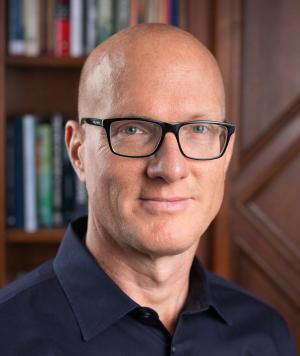
Brown University, Ph'D 02
BIOGRAPHY
I am an historian of modern US politics broadly construed, with special interests in the mutual constitution of social categories, democratic publics, and state formation.
My first book, Warfare State, is a history of the social politics of the national state as its foundations shifted from welfare to warfare during World War II. Its central concern is to examine the ways in which different groups of citizens encountered the burgeoning warfare state and in the process accepted, rejected, or otherwise contested the legitimacy of expanding federal authority in everyday life, thereby shaping the horizons of political possibility for decades.
I am currently completing a sequel to Warfare State tentatively titled Sovereign Discipline: The American Extraterritorial State in the Atomic Age. This book examines the mass politics of extraterritorial sovereignty, and the crisis of legitimacy it engendered, from V-E Day to the Cuban Missile Crisis. My third book project is also nearing completion. It is an intellectual history titled New Leviathan: Rethinking Sovereignty and Political Agency after Total War.
Much of this recent work is informed by a long-term collaborative research project on the problem of the democratic state, which has benefitted from two Neubauer Collegium project grants for which I am codirector ("The State as History and Theory" and "The Problem of the Democratic State in US History"), and resulted in the edited collection Boundaries of the State in US History as well as two special issues of the Tocqueville Review.
My teaching interests include both graduate and undergraduate courses on the history of US politics, diplomacy, and war; social engineering; social movements; citizenship; America in the world; the American state; and a set of undergraduate research seminars on the history of the New Deal, the early Cold War, and digital history. I am also committed to teaching in Chicago's distinctive Core Curriculum. It is one of the oldest general education curricula in the United States, engaging foundational works and questions in the humanistic social sciences for decades since the 1930s.
Recent Research / Recent Publications
Warfare State: World War II Americans and the Age of Big Government. New York: Oxford University Press, 2011.
- Honorable mention, 2012 Frederick Jackson Turner Award, Organization of American Historians.
- Review by Walter Russell Mead in Foreign Affairs (March/April 2012).
-
Boundaries of the State in US History, edited by James T. Sparrow, William J. Novak, and Stephen W. Sawyer . Chicago: University of Chicago Press, 2015.
-
"Beyond Stateless Democracy," edited by William J. Novak, Stephen W. Sawyer, and James T. Sparrow, special issue, Tocqueville Review 36, no. 1 (2015).
-
"The History of the French and American States," edited by Stephen W. Sawyer, William J. Novak, and James T. Sparrow, special issue, Tocqueville Review 33, no. 2 (2012).
-
"Democratic States of Un-Exception: Towards a New Genealogy of the American Political," coauthored with William J. Novak and Stephen W. Sawyer. In Many Hands of the State, edited by Kimberly Morgan and Ann Orloff. Cambridge: Cambridge University Press, in press.
-
"Rumors of Empire: Tracking the Image of Britain at the Dawn of the American Century." In Boundaries of the State in US History, edited by James T. Sparrow, William J. Novak, and Stephen W. Sawyer . Chicago: University of Chicago Press, 2015.
-
"Introduction," coauthored with William J. Novak and Stephen W. Sawyer. In Boundaries of the State in US History, edited by James T. Sparrow, William J. Novak, and Stephen W. Sawyer. Chicago: University of Chicago Press, 2015.
-
"Morgenthau's Dilemma: Rethinking the Democratic Leviathan in the Atomic Age." In "Beyond Stateless Democracy, edited by William J. Novak, Stephen W. Sawyer, and James T. Sparrow, special issue, Tocqueville Review 36, no. 1 (2015).
-
"Beyond Stateless Democracy," coauthored with William J. Novak and Stephen W. Sawyer, In "Beyond Stateless Democracy, special issue, Tocqueville Review 36, no. 1 (2015).
-
"Behind the Atomic Curtain: School Desegregation and Territoriality in the Early Cold War." In "The History of the French and American States, edited by Stephen W. Sawyer, William J. Novak, and James T. Sparrow, special edition, Tocqueville Review 33, no. 2 (2012): 115–139.
-
"Toward a History of the Democratic State," coauthored with William J. Novak and Stephen W. Sawyer. In "The History of the French and American States, special edition, Tocqueville Review 33, no. 2 (2012): 7–18.
-
"Freedom to Want: The Federal Government and Politicized Consumption in World War II." In Fog of War: The Second World War and the Civil Rights Movement, edited by Kevin M. Kruse and Stephen Tuck. New York: Oxford University Press, 2012.
-
"A Nation in Motion: Norfolk, the Pentagon, and the Nationalization of the Metropolitan South, 1941–1953." In The Myth of Southern Exceptionalism, edited by Matthew D. Lassiter and Joseph Crespino. New York: Oxford University Press, 2010.
-
"'Buying Our Boys Back': The Mass Foundations of Fiscal Citizenship in World War II." Journal of Policy History 20, no. 2 (2008): 263–86.
-
"Hot War, Cold War: The Structures of Sociological Action, 1940–1955," coauthored with Andrew Abbott. In Sociology in America: The American Sociological Association Centennial History, edited by Craig Calhoun. Chicago: University of Chicago Press, 2007.
-
Awarded 2023 Quantrell Award for excellence in undergraduate teaching
-
Named an OAH Distinguished Lecturer
-
Co-organizes Major Project on "State as History and Theory" at the Neubauer Collegium

